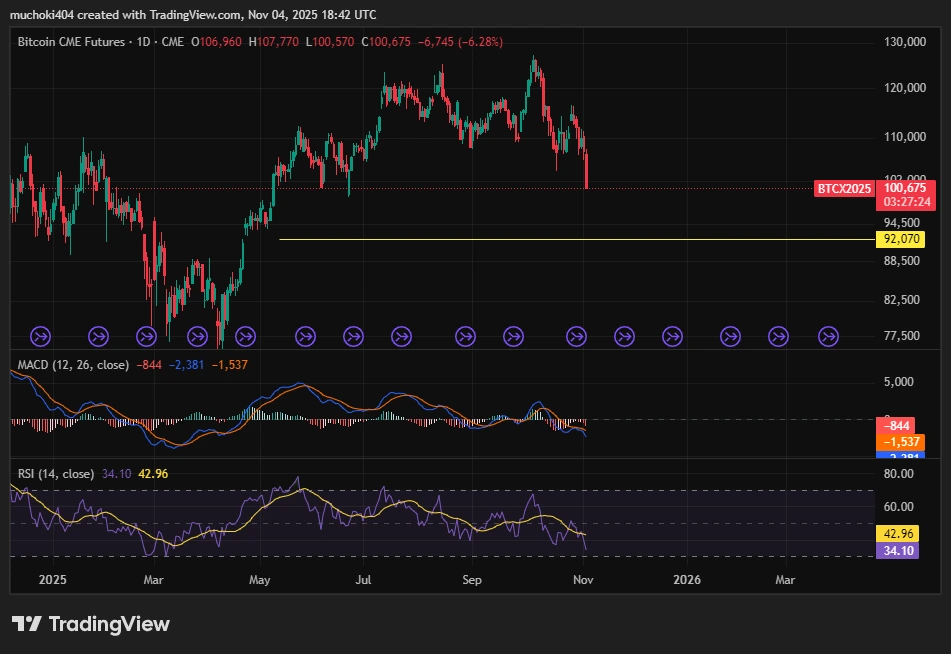The United States Cracks Down on North Korea's Cryptocurrency Assets Supporting Nuclear Arms Development
- U.S. Treasury sanctions 8 North Korean individuals/entities for laundering $2B+ in stolen crypto to fund nuclear programs. - Targets include state bankers, IT firms, and banks using mixers/shell companies to evade sanctions via China/Russia intermediaries. - Cyber-enabled theft by North Korea reached $3B in 3 years, exploiting AI hacking tools and social engineering attacks on crypto exchanges. - Sanctions aim to disrupt DPRK's ability to convert stolen crypto into hard currency, a critical lifeline for
The U.S. Treasury has intensified its efforts to dismantle North Korea’s illegal financial operations, imposing sanctions on eight people and two organizations involved in laundering more than $2 billion in cryptocurrency acquired through cyberattacks and IT worker schemes. The Office of Foreign Assets Control (OFAC) announced the measures on November 4, targeting prominent individuals and institutions that help the regime finance its nuclear and missile programs in defiance of international restrictions, according to
The sanctions specifically name North Korean bankers Jang Kuk Chol and Ho Jong Son, who oversaw $5.3 million in digital assets for the state-run First Credit Bank, an entity previously blacklisted for its ties to ransomware operations. Other sanctioned parties include the Korea Mangyongdae Computer Technology Company and Ryujong Credit Bank, both of which managed IT worker teams in China and offered financial services to circumvent sanctions, as reported by

Officials from the Treasury highlighted that North Korea’s cyber theft activities—unparalleled by any other country—have exceeded $3 billion over the past three years, with blockchain analytics firm Elliptic estimating $2 billion stolen in 2025 alone. The regime employs advanced hacking tools powered by AI, malicious software, and social engineering tactics to compromise crypto platforms and businesses. John K. Hurley, Under Secretary for Terrorism and Financial Intelligence, remarked that these actions "pose a direct threat to the security of the United States and the world," as reported by
The OFAC sanctions also draw attention to North Korean IT professionals who use false identities to penetrate international financial systems. In 2022, the Treasury cautioned American firms about employing such workers, who often disguise themselves as remote staff to gain access to financial infrastructure. The latest round of sanctions also targets representatives of North Korean banks operating in China and Russia, highlighting the global scope of the regime’s evasion tactics, according to
This move is part of a wider initiative to disrupt North Korea’s methods of bypassing sanctions, including a recent joint report outlining how cybercrime and IT contracting support its weapons development. By targeting those who facilitate these financial flows, the Treasury seeks to cut off North Korea’s access to hard currency derived from stolen crypto, a vital resource for its military objectives.
Disclaimer: The content of this article solely reflects the author's opinion and does not represent the platform in any capacity. This article is not intended to serve as a reference for making investment decisions.
You may also like
XRP News Today: XRP ETFs Close to Getting Approved as Companies Overcome SEC Obstacles
- Franklin Templeton removed the SEC's 8(a) delay clause from its XRP ETF filing, aiming for a potential launch this month. - Competitors like Bitwise and Canary Funds similarly revised filings, signaling industry-wide urgency to capitalize on regulatory clarity. - The SEC's recent Ripple settlement removes a major hurdle, with experts predicting XRP ETF approval by mid-November. - XRP ETFs could replicate Bitcoin ETF success by offering institutional-grade access to the third-largest cryptocurrency.

Solana News Update: Core Values or Hype? Solana's Ecosystem Divides the Crypto Community
- Solana's BONK token struggles with 57% price drop vs. MoonBull ($MOBU)'s $550K presale surge as high-risk 1000x play. - Hyperliquid's 65% HYPE token boost via $780M buyback contrasts BONK's failed $26.65M buyback due to lack of utility and revenue. - Bonk, Inc. emerges as institutional gateway to Solana's $3B-revenue ecosystem, bridging meme coins with regulated markets through token scarcity. - MoonBull's 7,244% projected gain and aggressive 27.4% stage jumps highlight speculative frenzy despite Solana'

YFI rises 1.75% on NOV 5 2025 During Brief Pullback and Sustained Upward Trend
- YFI surged 1.75% on Nov 5, 2025, but faces 6.51% weekly/monthly declines and a 44.94% annual drop. - Market remains volatile short-term yet retains long-term bullish momentum from multi-year trends. - Mixed technical indicators show daily RSI recovery but weekly oversold conditions and positive MACD divergence. - A backtest strategy evaluates YFI's rebound potential after 10% single-day drops using 2022 historical data.
Bitcoin Bloodbath: BTC Price Plunges Below $100K as Whales Vanish and Traders Brace for More Selloff
